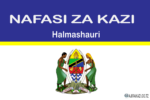AboutJeshi la Polisi Tanzania (Tanzania Police Force)
The Tanzania Police Force, under the jurisdiction of the Ministry of Home Affairs, is responsible for law enforcement within the country’s 947,303 square kilometers. The force is structured into five departments, each led by a commissioner. These departments include Administration/Resource Management, Operations, Criminal Investigations, Dar es Salaam Special Police Zone, and the Zanzibar Police Force. Oversight is provided by the Principal Secretary of the Ministry of Home Affairs and the Inspector-General of Police, who conduct internal affairs through tribunals and other appropriate measures.
The Tanzanian Police Force has undergone significant reforms, particularly between 2006 and 2009, under the leadership of Inspector General Saidi Mwema. This period was marked by rising crime rates and deteriorating public trust in the police, perceived as corrupt and violent. The reform program aimed to improve public perception of the police, update legal frameworks, and modernize police infrastructure and tools. The reform was developed through extensive consultation with police officers, academics, and various societal groups. However, challenges like insufficient funding and unclear monitoring mechanisms impacted the effectiveness of these reforms.
Following the conclusion of this initial reform period in 2009, a second phase of the reform program (2010/11 to 2014/15) was initiated to build on the previous reforms and address their shortcomings. This phase focused on improving operational and logistical capacity by implementing new systems and enhancing infrastructure.
Despite these efforts, problems persisted. High crime rates and police misconduct, including illegal arrest, torture, and excessive use of force, remained significant issues. Funding constraints also limited the impact of reforms. While some improvements were noted, such as a better public-police relationship and increased professionalism within the force, issues of corruption and police violence, especially against opposition activists, continued. The mixed success of the reforms was attributed to various factors, including the lack of funding, and difficulties in measuring the success of softer goals like professionalism and public perception.
The reform programs were characterized by several key initiatives, including:
- Repairing the relationship between the police and the community through initiatives like setting up a Complaints Unit for reporting police misconduct.
- Updating legal frameworks to reflect a new community policing mandate and enhancing professional conduct within the force.
- Modernizing IT systems and overhauling internal management systems, including human resource management, infrastructure, equipment, and information and communication technology.
The reform process involved extensive consultations and research to ensure policy objectives aligned with identified challenges. However, the lack of clear indicators for softer goals and the introduction of community policing without a clear policy diminished the clarity of the program’s objectives.
Funding limitations significantly hindered the full implementation of the reforms. Despite support from bilateral donors and the UN, substantial funding was not provided for high-priority sections of the reform program. This impacted various aspects of the reforms, including police training and the effectiveness of the Complaints Unit.
In managing the reforms, a centralized approach was initially adopted, later revised to encourage cooperation across different police units and address issues more holistically. Despite this, control mechanisms did not always function effectively, as indicated by irregular performance appraisals and insufficient follow-up on objectives.
Overall, the reform process in the Tanzania Police Force illustrates the complexity of modernizing law enforcement in challenging contexts. While there were some successes, the mixed outcomes highlight the importance of consistent funding, clear objectives, and robust management and monitoring structures to achieve lasting improvements in policing.












